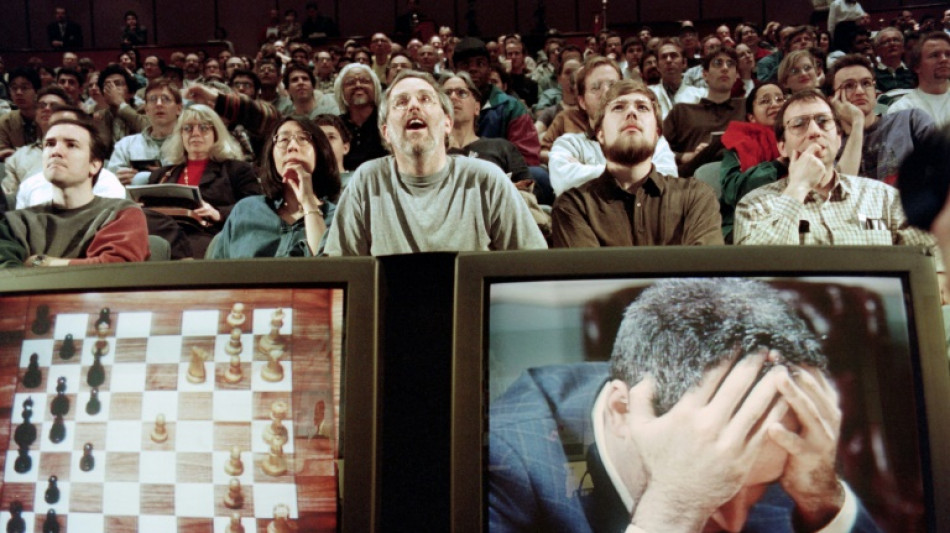
-
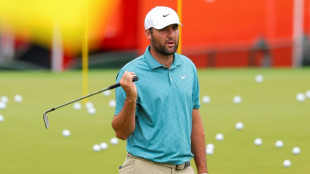 Rain soaks first practice day at PGA Championship
Rain soaks first practice day at PGA Championship
-
Progressive influencer tells of detention at US airport

-
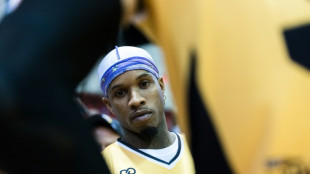 Rapper Tory Lanez attacked in US prison: authorities
Rapper Tory Lanez attacked in US prison: authorities
-
Trump announces drug price cut with swipe at Europe
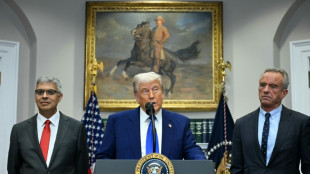
-
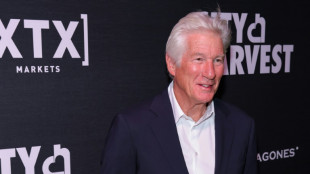 Hollywood stars condemn Gaza 'genocide' on eve of Cannes Festival
Hollywood stars condemn Gaza 'genocide' on eve of Cannes Festival
-
McIlroy looks to the future after post-Masters thrill ride

-
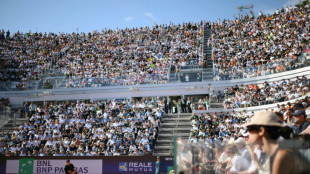 Sinner set for first Italian Open test, Sabalenka marches on
Sinner set for first Italian Open test, Sabalenka marches on
-
Son wants Europa glory to 'complete' Spurs career
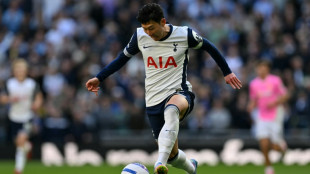
-
 First group of white South Africans arrive in US for resettlement
First group of white South Africans arrive in US for resettlement
-
Trump mulls joining Ukraine talks in Turkey, Kremlin silent on Putin

-
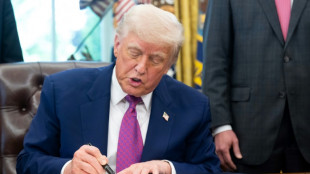 US, China agree to slash tariffs as Trump says will speak to Xi
US, China agree to slash tariffs as Trump says will speak to Xi
-
Spanish rider Landa returns home for 'long recovery' after Giro crash

-
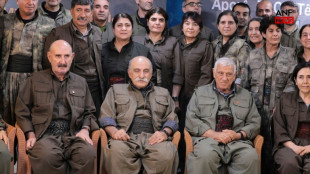 Kurdish militant group PKK ends decades of armed struggle
Kurdish militant group PKK ends decades of armed struggle
-
Trump says would be 'stupid' to reject Qatari Air Force One gift
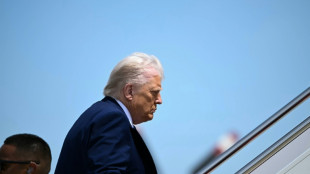
-
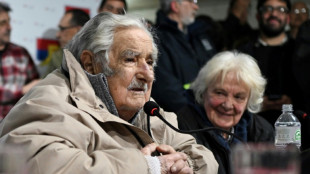 Uruguay's ex-president Mujica receiving palliative care: wife
Uruguay's ex-president Mujica receiving palliative care: wife
-
Remainder of IPL to be held between May 17-June 3 after ceasefire
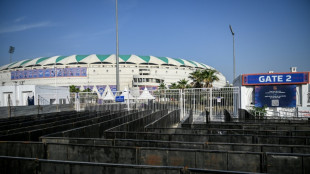
-
 Hamas frees US-Israeli hostage
Hamas frees US-Israeli hostage
-
Trump defends resettling white South Africans as refugees in US

-
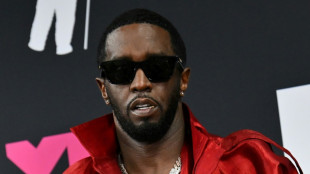 Sean 'Diddy' Combs was 'coercive and criminal,' jury hears
Sean 'Diddy' Combs was 'coercive and criminal,' jury hears
-
Nazi files found in champagne crates in Argentine court basement
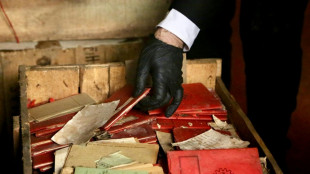
-
 Myanmar junta airstrike kills 22 at school: witnesses
Myanmar junta airstrike kills 22 at school: witnesses
-
Zelensky wants Trump at peace talks, Russia silent on whether Putin will go
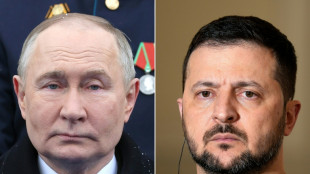
-
 Ground-breaking Grand National winner Blackmore retires
Ground-breaking Grand National winner Blackmore retires
-
Trump heads on major Middle East tour

-
 Nepal holds tribute for disappearing glacier
Nepal holds tribute for disappearing glacier
-
Sinner eases into Italian Open last 16, Osaka dumped out
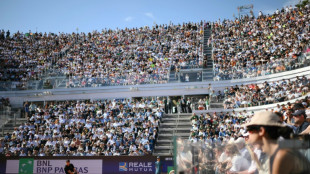
-
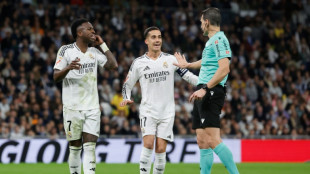 Real Madrid duo Vinicius, Vazquez injured
Real Madrid duo Vinicius, Vazquez injured
-
Indian PM Modi vows strong response to any future 'terrorist attack'
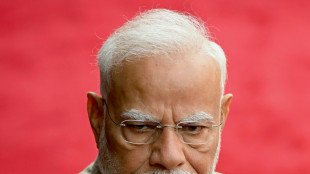
-
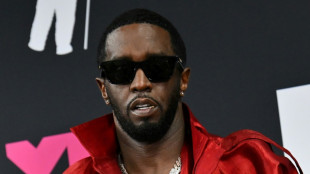 Opening statements start in Sean 'Diddy' Combs trial
Opening statements start in Sean 'Diddy' Combs trial
-
Snow cover of Swiss glaciers below average this year: study

-
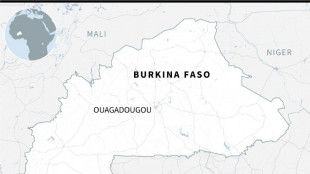 Jihadist attack kills 'several dozen' in Burkina Faso
Jihadist attack kills 'several dozen' in Burkina Faso
-
Ancelotti to leave Real Madrid for Brazil job

-
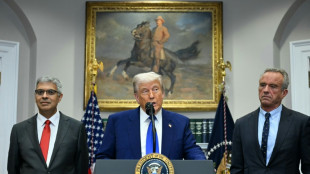 Trump announces drug prices cut with swipe at Europe
Trump announces drug prices cut with swipe at Europe
-
Ancelotti exits Madrid, hoping to add World Cup with Brazil
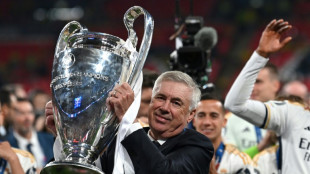
-
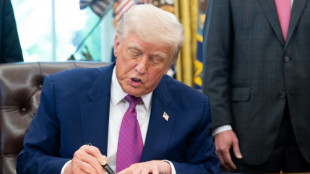 US, China agree to slash tariffs as Trump says to speak with Xi soon
US, China agree to slash tariffs as Trump says to speak with Xi soon
-
Ancelotti to take over as Brazil coach

-
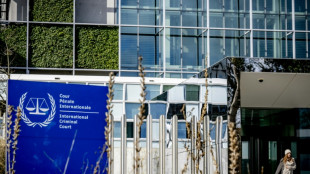 Israel urges ICC to drop arrest warrants against PM
Israel urges ICC to drop arrest warrants against PM
-
Poland to close Russian consulate in Krakow over 'sabotage'
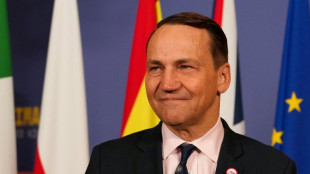
-
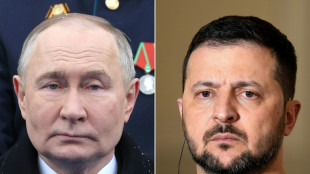 Kremlin rejects Europe's 'ultimatums' for truce with Ukraine
Kremlin rejects Europe's 'ultimatums' for truce with Ukraine
-
Ireland rugby captain Doris ruled out for up to six months

-
 Algerian attack survivor vows to be heard in court battle with award-winning author
Algerian attack survivor vows to be heard in court battle with award-winning author
-
Europa League glory could be 'turning point' for Spurs: Postecoglou

-
 White S.Africans resettled in US did not face 'persecution': govt
White S.Africans resettled in US did not face 'persecution': govt
-
Gaza faces 'critical risk of famine': UN report

-
 Indian teams defuse bombs in Kashmir border areas
Indian teams defuse bombs in Kashmir border areas
-
Kim Kardashian testifies in Paris multi-million-dollar robbery trial

-
 Alexander-Arnold exit will not overshadow Liverpool title party: Van Dijk
Alexander-Arnold exit will not overshadow Liverpool title party: Van Dijk
-
Osaka knocked out of Italian Open as fans await Sinner
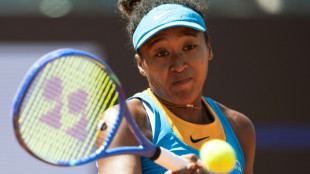
-
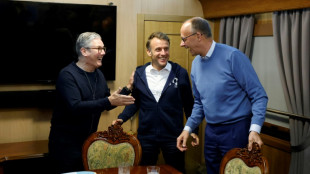 France condemns 'fake news' over Europe leaders' cocaine accusation
France condemns 'fake news' over Europe leaders' cocaine accusation
-
Indian PM Modi set to address nation after Pakistan truce
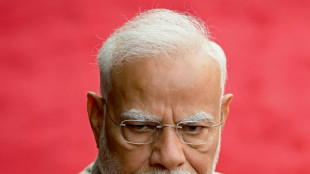

The 1997 chess game that thrust AI into the spotlight
With his hand pushed firmly into his cheek and his eyes fixed on the table, Garry Kasparov shot a final dark glance at the chessboard before storming out of the room: the king of chess had just been beaten by a computer.
May 11, 1997 was a watershed for the relationship between man and machine, when the artificial intelligence (AI) supercomputer Deep Blue finally achieved what developers had been promising for decades.
It was an "incredible" moment, AI expert Philippe Rolet told AFP, even if the enduring technological impact was not so huge.
"Deep Blue's victory made people realise that machines could be as strong as humans, even on their territory," he said.
Developers at IBM, the US firm that made Deep Blue, were ecstatic with the victory but quickly refocused on the wider significance.
"This is not about man versus machine. This is really about how we, humans, use technology to solve difficult problems," said Deep Blue team chief Chung-Jen Tan after the match, listing possible benefits from financial analysis to weather forecasting.
Even Chung would have struggled to comprehend how central AI has now become -- finding applications in almost every field of human existence.
"AI has exploded over the last 10 years or so," UCLA computer science professor Richard Korf told AFP.
"We're now doing things that used to be impossible."
- 'One man cracked' -
After his defeat, Kasparov, who is still widely regarded as the greatest chess player of all time, was furious.
He hinted there had been unfair practices, denied he had really lost and concluded that nothing at all had been proved about the power of computers.
He explained that the match could be seen as "one man, the best player in the world, (who) has cracked under pressure".
The computer was beatable, he argued, because it had too many weak points.
Nowadays, the best computers will always beat even the strongest human chess players.
AI-powered machines have mastered every game going and now have much bigger worlds to conquer.
Korf cites notable advances in facial recognition that have helped make self-driving cars a reality.
Yann LeCun, head of AI research at Meta/Facebook, told AFP there had been "absolutely incredible progress" in recent years.
LeCun, one of the founding fathers of modern AI, lists among the achievements of today's computers an ability "to translate any language into any language in a set of 200 languages" or "to have a single neural network that understands 100 languages".
It is a far cry from 1997, when Facebook didn't even exist.
- Machines 'not the danger' -
Experts agree that the Kasparov match was important as a symbol but left little in the way of a technical legacy.
"There was nothing revolutionary in the design of Deep Blue," said Korf, describing it as an evolution of methods that had been around since the 1950s.
"It was also a piece of dedicated hardware designed just to play chess."
Facebook, Google and other tech firms have pushed AI in all sorts of other directions.
They have fuelled increasingly powerful AI machines with unimaginable amounts of data from their users, serving up remorselessly targeted content and advertising and forging trillion-dollar companies in the process.
AI technology now helps to decide anything from the temperature of a room to the price of vehicle insurance.
Devices from vacuum cleaners to doorbells come with arrays of sensors to furnish AI systems with data to better target consumers.
While critics bemoan a loss of privacy, enthusiasts believe AI products just make everyone's lives easier.
Despite his painful history with machines, Kasparov is largely unfazed by AI's increasingly dominant position.
"There is simply no evidence that machines are threatening us," he told AFP last year.
"The real danger comes not from killer robots but from people -- because people still have a monopoly on evil."
B.Finley--AMWN